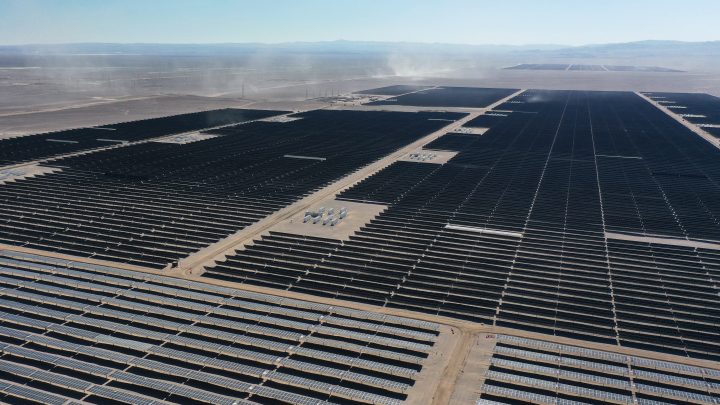
The federal government is investing in solar. Chinese companies are getting a share of it.
The federal government is investing in solar. Chinese companies are getting a share of it.

As part of the Inflation Reduction Act, the federal government plans to subsidize green energy initiatives, including the construction of new domestic solar panel factories. But some of that funding will likely end up in the hands of foreign solar companies — particularly Chinese companies. Some in the U.S. have raised objections to that.
Phred Dvorak covers the energy transition and climate at The Wall Street Journal. She spoke with “Marketplace” host Amy Scott about her story on Chinese companies receiving subsidies to set up factories in the U.S. and what it means for the domestic solar industry.
Amy Scott: China has long dominated the solar panel business, but they’re starting to build factories here in the U.S. Why is that?
Phred Dvorak: There’s a carrot reason and a stick reason. So the stick reason would be tariffs and anti-dumping policies that the U.S. has levied for years on Chinese solar panels. It’s getting harder and harder for companies that manufacture mainly in China to export their panels to the U.S. The carrot reason is the IRA has very generous production subsidies for companies that actually set up manufacturing in the U.S. And so they’re responding to both of those.
Scott: Now, the IRA funds were intended to really set up a domestic solar panel industry, right? Is this a problem if some of the beneficiaries are not American companies?
Dvorak: Well, when you look at the solar industry, although a lot of the technology was developed in the States, all the manufacturing pretty much is done outside of it. So, you wouldn’t be able to stand up domestic solar manufacturing in the U.S. without the help of companies that aren’t from the U.S. When you’re talking about China in particular it could be very good for local economies and jobs to have companies come to the U.S. and manufacture here. It doesn’t really matter whether it’s a Chinese company or not a Chinese company. But there are other objections that people have raised to Chinese companies in particular.
Scott: What are some of those objections? I mean, given that the U.S. has been imposing tariffs for a long time on these same companies.
Dvorak: Well, one is that if you have companies that are already dominant and already strong, that control such a big percentage of manufacturing, and you give them subsidies to help set up somewhere new, you’re just cementing their dominance. Another example, and particularly because, you know, China and the U.S., the geopolitical tensions between the two are increasing. It could be an energy security or national security threat.
Scott: And how does the U.S. government respond to that?
Dvorak: Well, on the national security side, they say that, you know, the government has ways of looking at all foreign investment, to see whether or not they do present a national security threat. That’s the [Committee on Foreign Investment in the United States] that looks at those investments. And on the other side, they say it’s a good thing to have investments in manufacturing in the U.S. that bring clean energy and the ability to build clean energy here.
Scott: You cover the energy transition, and obviously, we need more solar panels. How close do these IRA subsidies get us to getting there, whether it’s Chinese companies receiving them or American companies?
Dvorak: The subsidies are very important to helping close the gap between how much it costs to build this stuff, whether it’s solar panels or wind turbines, in the U.S. and how much it has been costing overseas. And so if you want the domestic industry, the IRA subsidies are crucial to helping companies make that financial decision to come here and locate here.
There’s a lot happening in the world. Through it all, Marketplace is here for you.
You rely on Marketplace to break down the world’s events and tell you how it affects you in a fact-based, approachable way. We rely on your financial support to keep making that possible.
Your donation today powers the independent journalism that you rely on. For just $5/month, you can help sustain Marketplace so we can keep reporting on the things that matter to you.

















